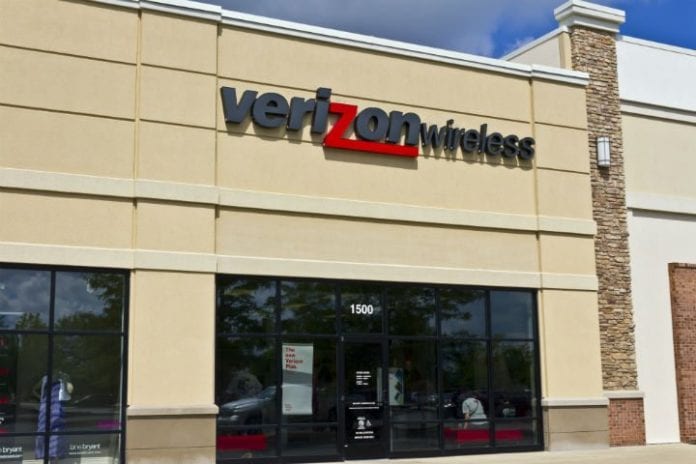Verizon CFO Fran Shammo stayed the course in terms of the carrier’s view on unlimited data, warning it will catch up with rivals
Verizon Wireless remains, for the time being, against running out an “unlimited” data plan, noting consumers that desire such offers tend to be “abusive.”
Speaking at this week’s Goldman Sachs Communacopia Conference, Verizon Communications CFO Fran Shammo said he does not think consumers really need unlimited data and consumers that take advantage of those plans “can really wreak havoc to your network.”
“At the end of the day, as we launched LTE, I continue to say you cannot make money in an unlimited video world,” Shammo explained. “You just can’t do it, because you need to generate cash flow to keep up with your demand.”
Shammo’s comments echoed those he made earlier this year, following the launch of an unlimited cellular data option by rival AT&T Mobility for customers who also sign up for one of the company’s digital television services. Smaller rivals T-Mobile US and Sprint have since pushed new unlimited data plans, which has placed a brighter spotlight on Verizon Wireless continuing to shun such moves.
“And at some point that’s going to catch up with … all the people who talk about how great their networks are,” Shammo added. “The drive tests prove that their networks are starting to get cracks in their armor. So, we’ll just play this app and we’ll continue to be the premium provider in the industry.”
In terms of its network support, Verizon Wireless continues to migrate customer usage away from its legacy CDMA operations and onto its LTE-based network, though it still has 45% of its deployed spectrum resources supporting its older network. Shammo noted CDMA support would continue to dwindle, pointing out that the latest Apple iPhone 7 devices come enabled to support voice calling over Wi-Fi and LTE and “CDMA is just there for safety sake if it can’t find a [voice-over-LTE] signal.
“But as time goes on you’re just going to get into, and we think by end of 2017, we will just have LTE-only phones,” Shammo said. “And once you start to decline in that CDMA usage, all of that spectrum will start to be reallocated to LTE. Then you also get into unlicensed. So we will start to deploy unlicensed on 5 GHz next year for downlink purposes.”
With investment into its CDMA network already dropping, Shammo said he expects the carrier to remain neutral overall on wireless network capital expenses, citing the carrier’s current focus on “5G” technology. The exec did note the investment would not equal what the carrier has put into its LTE network as “it actually rides over the same infrastructure. So the dark fiber is there. When you put a small cell in, we lay fiber to the small cell. The only incremental is we have to add an antenna to that small cell to create the beam for 5G, and then, of course, the spectrum behind that because you need the high 28 to 39 GHz-type spectrum. So, I would say, the capital requirement is not a huge incremental life, because once you densify you’re just going to shift the densification capital over to a 5G capital.”
In terms of capital savings, Shammo noted the company has shed nearly 8,000 jobs since the same point last year “and we did it quietly.” In addition, the carrier’s recently settled labor dispute allowed Verizon Communications to eliminate jobs through early retirement programs and received medical caps that are expected to result in $500 million worth of savings over the term of the deal.
Verizon Communications also is looking to close some company-owned stores in select markets or turn those locations over to indirect channels.
Shammo also said the carrier is prepared to support mobile virtual network operator plans touted by cable operators Comcast and Charter, both of which have activated such clauses in an agreement born out of Verizon Wireless’ acquisition of 1.7/2.1 GHz spectrum licenses in 2011.
“We’ve been in the reseller business for 20 years,” Shammo explained. “So we have sold our network to plenty of providers over those last 20 years. And what you have to understand is a wholesale model in a company is extremely profitable, because you don’t have all of the additional retail overhead with it.”
Not all are convinced the move by cable companies will be successful. Wireless industry veteran John Stanton this week at the Competitive Carriers Association Annual Convention said he did not expect the ventures to pan out.
“With four nationwide carriers, the notion you are going to deliver a service means you need to price down. That’s hard to do,” Stanton said, adding the company also will have to deal with device powerhouses like Apple and Samsung in terms of supporting its unique Wi-Fi-first business model and bolster its own retail presence. “I don’t view them as a threat, at least if they continue down their current plans. … They will fail miserably.”
Bored? Why not follow me on Twitter
Photo copyright: jetcityimage / 123RF Stock Photo

